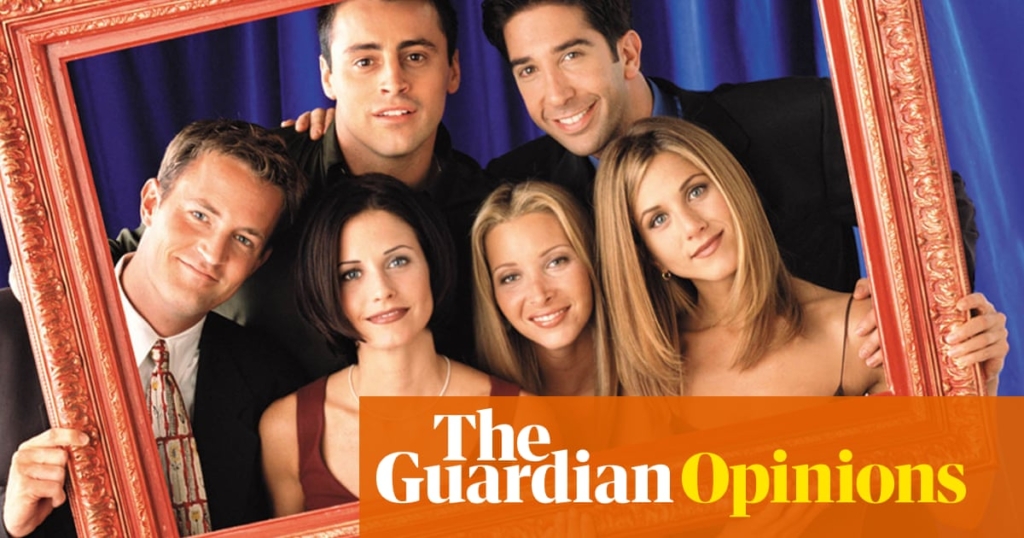Bu içerik, Friends dizisinin oyuncularından Lisa Kudrow’un Friends oyuncu kadrosuyla arkadaş olmanın ve arkadaş kalmakta bazen zorlandığını söylemesini konu ediyor. Kudrow, Armchair Expert podcast’inde “Bu altı kişilik ilişki bazen zor oldu – ama başardık” dedi. “Arkadaş olmaya çalıştık.” şeklinde açıklamalarda bulundu. İçerikte ayrıca, TV dizilerindeki arkadaşlıkların gerçek hayattaki arkadaşlıklardan farklı olduğu ve gerçek dostlukların zaman ve çaba gerektirdiği vurgulanıyor. Aynı zamanda, on-screen arkadaşlıkların genellikle gerçekçi olmadığı ve gerçek hayattaki arkadaşlıkların daha değerli olduğu anlatılıyor.
[ad 1]
Kaynak: www.theguardian.com
Lisa Kudrow says being and staying friends with her Friends co-stars was tough at times. “That six-way relationship took some work – and we did it,” she told the Armchair Expert podcast. They “worked hard at being friends”.
This is no Sex and the City-style daggers-drawn revelation – Kudrow essentially said that they sometimes had to act like sensible adult humans to maintain the easy screen intimacy we all watched play out on Monica’s couch. But for me it came as a relief and a confirmation of something I only recently muddled out: TV friendships aren’t real.
I know how daft that sounds, but the culture we consume is powerful. In my teens, my vision of romantic relationships was nourished, but mainly catastrophically distorted, by a diet of doomed love: books (Anna Karenina, Tess of the d’Urbervilles, Madame Bovary) and films (Jean-Jacques Beineix’s loopy but stylish Betty Blue has a lot to answer for in my early, unhappy, romantic history). I believed love should be dramatic, possibly tragic; we were supposed to rip each other apart. But then I grew up and realised that love could be gentle and incredibly prosaic, that it required more tolerance and painful self-examination than wild romantic gestures, and that culture had sold me a lie.
For some reason it’s taken me far longer to apply that critical thinking to on-screen friendships. For decades I accepted, unquestioningly, what sitcoms and soaps told me: that close-knit groups of friends form and stay together organically and effortlessly, and that unrelated adults can spend large swathes of their lives hanging out with each other having fun. That friendship is easy, basically.
It wasn’t for me, and it’s mostly my fault. I didn’t spend enough time with my friends at university (all that relationship drama), or afterwards. I drifted, disengaged, didn’t put in the ordinary, important hours, but I also had kids early, moved countries multiple times and dealt with the kind of life events that thin out tighter friend groups than mine. Throughout, TV left me wondering where my cool group of fun, like-minded people was. Why weren’t we living in each other’s kitchens, carrying each other home from the pub legless, sharing in-jokes, candid Polaroids and karaoke mics? I had failed at friendship, which was supposed to just … happen.
I still slightly feel that – writing this, I’m reluctant to admit how little my friendships resemble on-screen ones. “I have friends,” I find myself wanting to protest – and I do, but not a Friends-style ride-or-die gang, like, I historically assumed, everyone else had.
That was pretty dim, or at least naive, of me. For lots of TV, it’s a structural necessity to have a recurring cast of characters reliably, permanently interwoven in each other’s lives. Real friendships would make for terrible TV: the principals interacting 95% of the time in baggy, sprawling WhatsApp groups full of scheduling clashes, eleventh-hour cancellations and Drag Race gifs (Sally Rooney might make an interesting experimental novella of it, I suppose). But somehow, it’s only really now, watching the delightful sitcom Shrinking – about a group of LA therapists and their friends – that I’ve looked at on-screen friendship and thought: no.
This frictionless, multigenerational friend group hanging out together, talking through their problems and supporting each other unquestioningly 24/7 is not realistic. No one is that tolerant and evolved while also being consistently funny! Plus, they are – mostly – colleagues. No shade on mine past or present, but is it really healthy to hang out constantly with people you work with? I suppose if one of them were an appealingly grizzled Harrison Ford (who plays a grumpy therapist in Shrinking) I might think differently.
This belated revelation makes me think that perhaps, just as we’ve realised we need to tell teenagers that porn isn’t like real sex, it might be helpful to explain Friends isn’t like real friendships. That in adulthood, people rarely just drop round and hang out on your sofa. That friendships can survive geography and shifting circumstances, but you might not manage to “be there” for each other in person that often. And Kudrow is right: like romantic relationships, friendships take work, but they are actually more precious – deeper, stronger – for the work you put into them. I realised that eventually, but I really wish I’d learned it sooner.







Yorumlar kapalı.